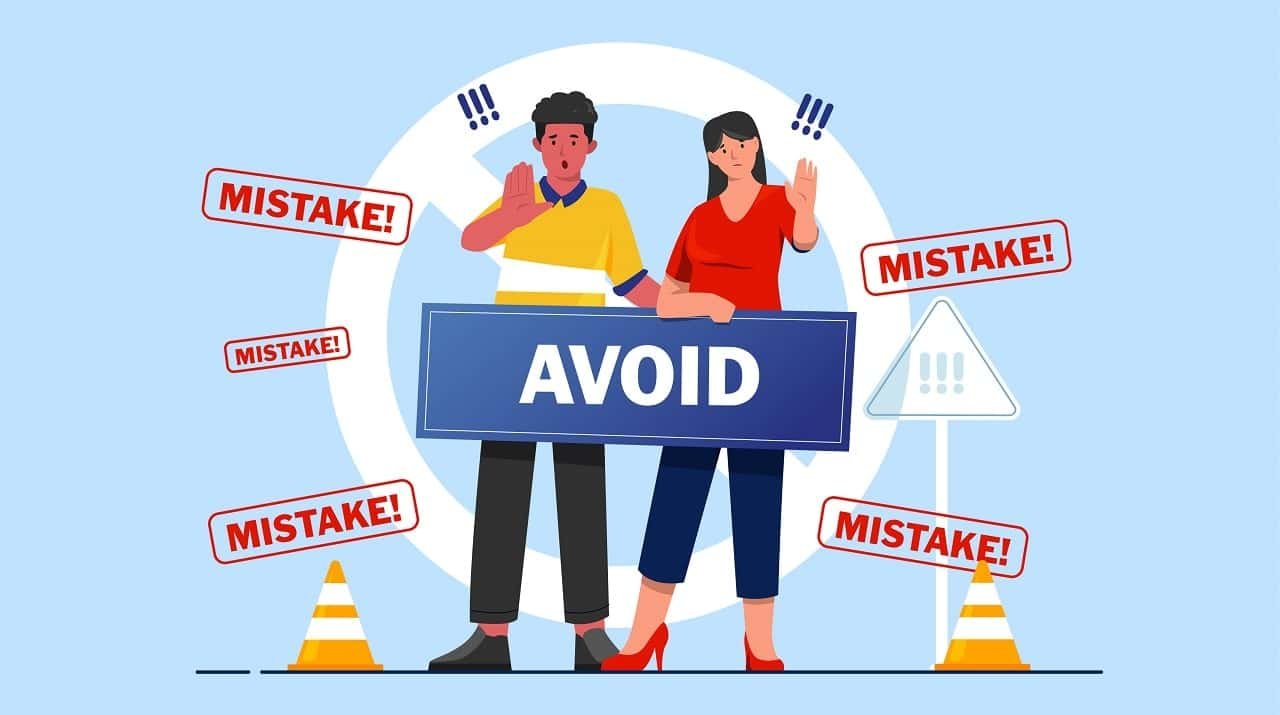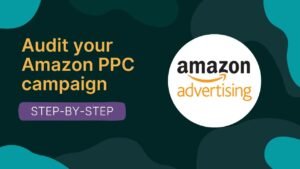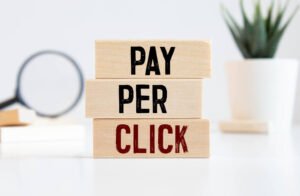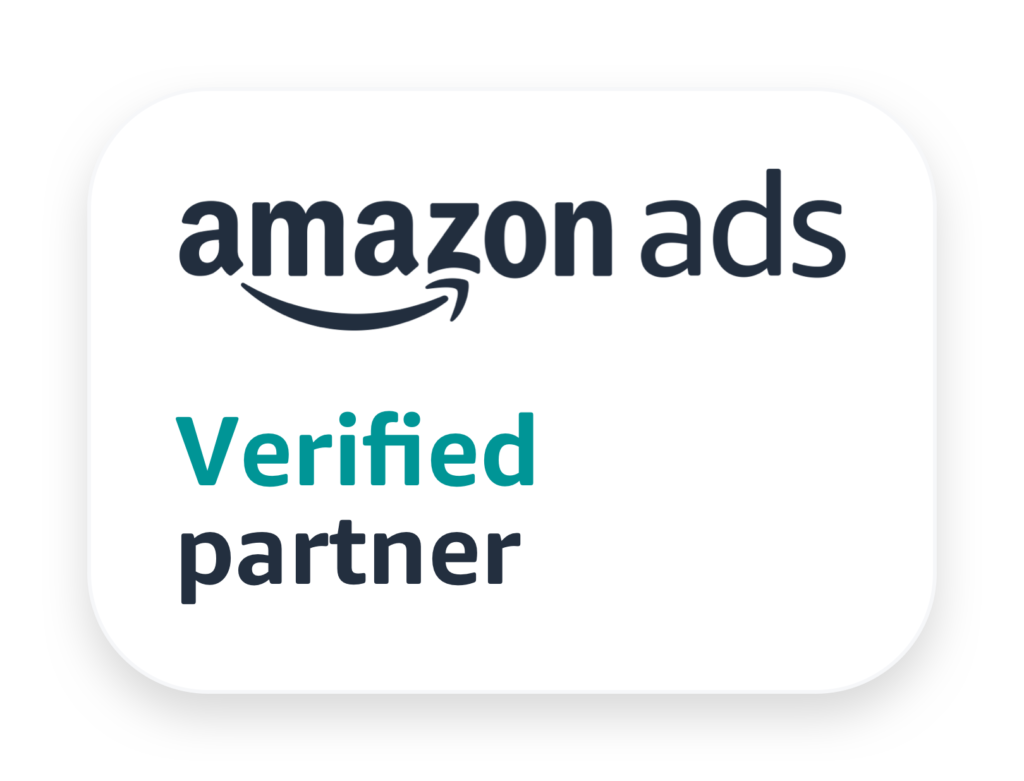Pay-per-click (PPC) advertising is a pivotal digital marketing strategy that allows your business to drive visitors to your website via paid advertisements. PPC, unlike organic methods like SEO, allows advertisers to bid for ad placement in paid search results, social media, or other advertising spaces. PPC trends hold the potential for businesses to generate targeted traffic, leads, and conversions through the right PPC strategies.
PPC is a powerful marketing tool to get measurable results and return on investment for big and small companies alike. Advertisers use some targeted keywords in their ads to place their ad in front of the audience most likely to convert.
How Does PPC Work?
PPC (pay-per-click) campaigns are structured in such a way where advertisers bid for every click on their ads. This includes the budget and keywords that match the product or service you offer. Depending on their goals, advertisers can select search ads, display ads, & social media ads.
An auction process based on bidding (via a platform, e.g., Google Ads or Bing Ads or whatever) with ad relevance and quality score of the ad will decide which ad will be displayed. The auction winner is not determined solely by the highest bid but a combination of ad quality, user experience, and keyword relevance.
Key Benefits of PPC Advertising
- Instant Traffic: SEO can take a long time to start showing any results, but PPC traffic starts coming to your website as soon as your ads go live.
- Targeted Advertising: PPC allows narrower targeting parameters as you want the right people to see your ads and based on criteria like location, device, and day to target ads to the right audience.
- Measurable Results: One of the main reasons why PPC is successful is because it can be well measured. You can track clicks, conversions, and ROI to measure the effectiveness of your campaigns.
- Budget Control: You can set daily or monthly budgets on PPC campaigns, which means you have full control over the maximum amount you are ready to pay.
Types of PPC Ads
- Search Ads: search results pages, when screened by the consumer against relevant keywords, are very specific in nature and are usually high-converting.
- Display Ads: Visual ads shown on the websites and apps you browse across the web. These can be images, videos, or any interactive content.
- Social Media Ads: You can find targeted PPC ad placements in social media networks like Facebook, Instagram, and LinkedIn that can help generate engagement and conversions.
- Shopping Ads: These ads appear when a shopper searches Google for a product. They show the product image, price, and store name.
PPC Platforms
We can run PPC campaigns on a variety of platforms. Here are the more common ones:
- Google Ads: The biggest PPC platform, especially suitable for search ads and display ads.
- Bing Ads: Bing Ads comes in as a strong contender to Google Ads with a slightly different audience.
- Facebook Ads: Helps you run targeted ads on Facebook and Instagram.
- LinkedIn Ads B2B advertising and lead generation on LinkedIn Ads.
- Amazon Ads: Amazon Ads is an essential platform for sellers who want to promote their products on Amazon itself.
Best Practices for PPC Campaigns
- Keyword Research: Make sure to perform keyword research to find out what your target audience is searching for. Identify relevant keywords with tools such as the Google Keyword Planner or SEMrush.
- Create Compelling Ad Copy: Your ad should be written in a clear, concise, and targeted manner that closely matches the original search intent. Make sure to accentuate your USPs and offer strong CTAs.
- Optimize Landing Pages: Make sure your landing pages are conversion-ready. They should be relevant to your ad and be able to deliver a seamless experience to the user.
- A/B Testing: Try out various ad combinations and landing pages regularly to maximize effectiveness.
Common Mistakes to Avoid in PPC Campaigns

On the other hand, you will burn money if you overlook negative keywords, which are responsible for ensuring your ads don’t appear on irrelevant searches.
- Ignoring Negative Keywords: You will burn money if you overlook negative keywords, which are responsible for ensuring your ads don’t appear on irrelevant searches.
- Overlooking Mobile Optimization: The same goes for the landing pages. As most of the users click on PPC ads through mobile devices, the online business should optimize pages for mobile users, as landing pages should be mobile-friendly.
- Not Tracking Conversions: If you do not track conversions, you can never know how well your campaigns are performing.
How to Measure PPC Success
To measure the success of your PPC campaigns, focus on the following key metrics:
- Click-Through Rate (CTR): The number of times people click on your ad after it has been shown.
- Cost Per Click (CPC): This metric shows how much you are paying for each click.
- Conversion Rate: This refers to the ratio of people who perform an action you want them to take on your website after clicking the ad.
- Return on Investment (ROI): It enables you to assess how much profit you make from your PPC campaigns.
Why Choose PPC Advertising for Your Business?
Among all forms of online advertising, PPC remains one of the fastest for targeted traffic and sales generation. With the help of Google Ads, Facebook Ads, and Amazon Ads, you can get more audiences, brands to appear, and increase conversions.
If you are looking to get started with PPC advertising, explore the PPC services offered by SwiftSpark PPC Advertising. Our tailored solutions help businesses maximize their online presence and achieve higher ROI.
Conclusion
With PPC advertising, you get measurable results when it comes to leading traffic and generating leads, making it a very effective way to grow your business. When it comes to planning your ad campaigns, all leads are not created equal, and by choosing different specific keywords and optimizing your campaigns around these and tracking results, you will ensure that your advertising efforts pay off handsomely. PPC is not as simple as many take it to be if you are just starting out or you want to increase your PPC strategies; knowing the basic fundamentals and best practices is the key to success.
FAQs:
How much does PPC advertising cost?
The cost of PPC advertising depends on various factors such as keyword competitiveness, ad placement, and target audience. You can control your budget by setting daily or monthly limits.
How do I know if my PPC campaign is successful?
You can measure the success of your PPC campaign by analyzing metrics like CTR, CPC, conversion rate, and ROI.
Can I target specific locations with PPC?
Yes, most PPC platforms allow you to target specific geographic locations, ensuring your ads reach the right audience in the right places.
















